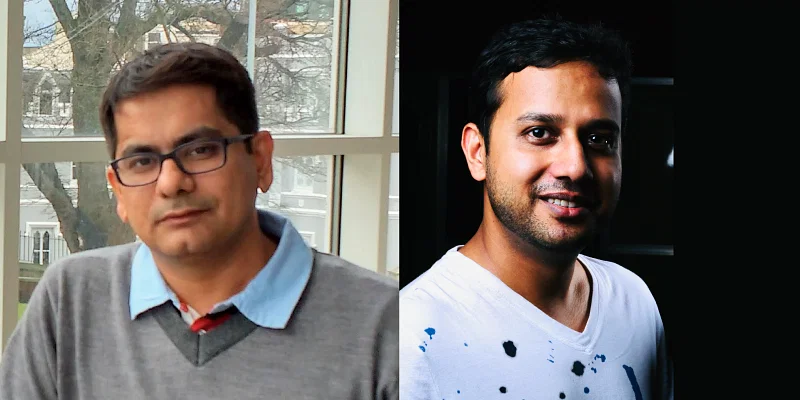BUSINESS
Jitesh Dadlani and Sandip Singh: Revolutionizing Recycling with Robotics

Waste management and recycling in India face a significant challenge in the form of material recovery and sorting. With an immense volume of waste generated daily, the burden of manual sorting on the workforce, primarily comprising women and children, is substantial. Jitesh Dadlani recognized this issue and spent nearly a year immersed in the waste sorting process to gain firsthand insights into the challenges faced by the labour force. “In India, a high volume of waste is generated, with cities like Ahmedabad producing up to 4,000 metric tonnes of waste per day. How can we expect humans to sort through such a vast amount of waste? The challenge was to find an innovative solution to handle this volume effectively,” recalls Dadlani. In response to this pressing issue, he founded Ishitva Robotic Systems in 2018, aiming to bring technology to the forefront of waste management.
“Some industry insiders jokingly call us ‘mad engineers emerging from the dump yard,'” quips Sandip Singh, the CEO of Ishitva. Ishitva Robotic Systems has developed a range of cutting-edge solutions to address the challenges of waste sorting and recycling. Among these innovations are:
- Netra Machine Vision System: This system provides instructions and real-time insights for material sorting operations on conveyor belts, enhancing accuracy and efficiency.
- Suka AI-Powered Air Sorting: A plug-and-play high-speed mechanical sorting machine for dry waste that leverages artificial intelligence to improve the sorting process.
- Yuta AI-Powered Robotic Sorting: This pick-and-place machine for recyclables incorporates live monitoring and data analysis capabilities, further optimizing the recycling process.
The Ahmedabad-based company collaborates with recycling firms, primarily its clients, to establish material recovery facilities (MRFs) using its innovative solutions. “We are a tech company that acts as an enabler for the recycling ecosystem. To achieve this, we have created these AI-powered tools,” explains Singh. Ishitva typically charges clients a one-time setup cost for their operations, after which they take a hands-off approach to daily facility management. Ishitva Robotic Systems has made significant strides in the recycling sector and currently operates four fully functional MRFs across India, with three more expected to become operational in the coming months. In October 2021, the startup successfully raised a Pre-Series A funding round, securing over $1 million in investment led by Inflection Point Ventures.
When comparing Ishitva’s technological innovation to manual labor, Dadlani emphasizes the substantial difference in efficiency. He states, “It takes about 10-15 people approximately 8-10 hours to sort 1 tonne of plastic waste manually. However, using our technology, a single machine can sort an impressive 6 tonnes of waste per hour.” Apart from the time saved, another crucial factor in recycling is the quality of the input material. Singh underscores, “The better the input is refined and sorted, the higher the quality of the output.”
A Socially Responsible Approach:
Jitesh Dadlani’s research and experience in the waste management sector also brought to light the poor working conditions and treatment of laborers. While many were aware of the issue, few were willing to address it. Dadlani notes, “People wanted the problem to be solved, but no one was eager to solve it.” Looking ahead, Ishitva Robotic Systems aims to expand its impact not only in India but also in several other countries. Their innovative solutions have the potential to revolutionize recycling practices, making them more efficient, environmentally friendly, and socially responsible. Jitesh Dadlani and Sandip Singh are pioneers in transforming the waste management landscape through robotics and technology.
